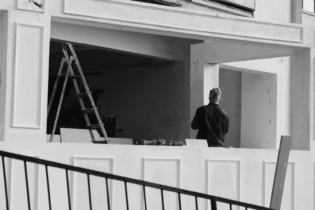Occupational health and safety specialists have noted that the ruling by the Constitutional Court to decriminalise the private use of cannabis has raised important questions for the construction industry.
Gerhard Roets, Construction Health and Safety Manager at the Master Builders Association North, says that companies and their health advisors need consider the impact of the new legislation on their business from an occupational health and safety management point of view. Roets notes that the issue for employers is how to determine whether workers are under the influence of cannabis or not when they come to work. The problem according to Roets is that the metabolism of cannabis is complex and raises two important issues for employers.Grey areas
One is that a standard urine test is no longer useful, because it simply screens for the metabolites of cannabis, which may be present long after the psychoactive effects of cannabis have worn off – some days, in the case of recreational, occasional users, to weeks in the case of habitual users. When cannabis was illegal, the urine test was considered enough to institute disciplinary action, but clearly this will no longer suffice as the drug may have been used in the workers private time.The second issue is that to date there is no real standard in South Africa for determining whether an individual is over or under some sort of limit, as there is in the case of alcohol. In other words, merely having used cannabis in the past is not necessarily an indication that the individual is at present “under its influence”.
Saliva tests only screen for THC, so the hope is that they could be used to determine whether a person is actually “under the influence” of cannabis, and thus a health and safety risk. Considerable research has been done internationally on testing for driving under the influence of cannabis, and some jurisdictions have specified limits of cannabis in the saliva and blood. “This research could be incorporated into South African workplace practice, but it is critical that we start by directing our focus to the development of sufficiently sensitive on-site tests in order to keep our work places safe” Roets says.





